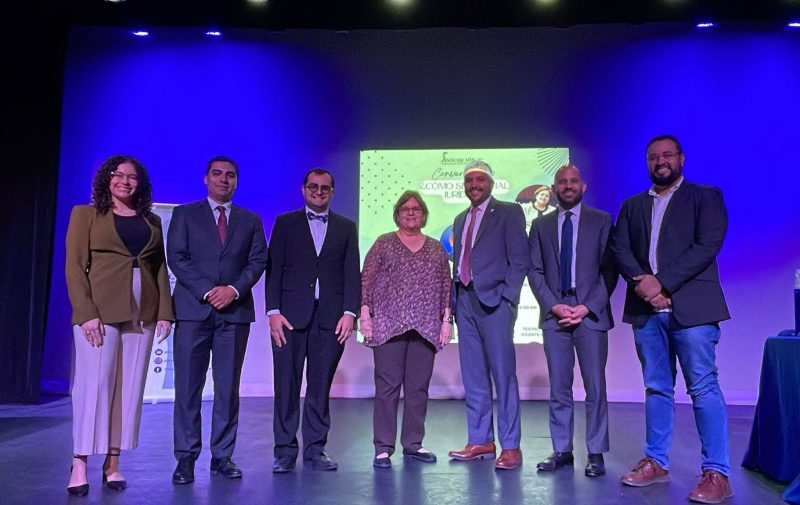Linette Bonet Martínez- Law Student
There’s no doubt that Puerto Rico is experiencing the island’s hardest economic downturn since the birth of the Commonwealth (Estado Libre Asociado (ELA)) in 1952. In September 2017, a devastating hurricane struck the island, crippling the power company and destroying houses. Since then, Puerto Rico’s economy had been slowly progressing toward recovery. Not yet recovered from the Hurricane Maria, earlier this year, a series of earthquakes affected the south side of the island, damaging roads, buildings, and homes. Lastly, Puerto Rico was recently hit by the Tropical Storm Isaias on July 30, 2020, leaving behind extensive flooding, damage, and deaths. Although these events have contributed to the existence of economic difficulties faced by the society, these did not lead to an increase in unemployment rates and drop in sales caused by the COVID-19 Pandemic in the states and territories, i.e., Puerto Rico.
The Covid-19 recession has affected small and large businesses, causing significant financial distress and pushing some of them to temporary or permanent closing. This event marked the beginning of numerous insolvencies arising from the business disruptions prompted by the COVID-19 Pandemic. It’s inevitable not to foresee an increase in bankruptcy proceedings due to the rising of unemployment rate and continued shutdowns. This leaves businesses with too little cash reserves to cover debt payments owed to creditors. As COVID-19 infections increase on the island, it brings the certainty of renewed lockdowns; thus testing the capability of various companies and businesses and their ability to survive another sequence of little to no revenue, as was seen during March and April of 2020. While the federal government has assisted by providing incentives for quicker recovery, it has been very strenuous, especially to small businesses, who had to decreased operating hours, open at half capacity, and use one-fourth of its labor force.
Due to the economic uncertainty caused by COVID-19, the 116th U.S. Congress passed the most substantial stimulus package in history. The Coronavirus Aid Relief and Economic Security Act, also known as the CARES Act, was introduced to provide fast and direct economic assistance for American workers, families, small businesses, and to preserve jobs for American industries. Under the CARES Act, the Paycheck Protection Program (PPP) was introduced with its primary goal to support small businesses during the Covid-19 Pandemic. The program administered by the U.S. Small Business Administration (SBA). The plan states that an eligible small business may obtain a guaranteed loan to cover certain expenses, including payroll costs and interest on mortgage obligations, rent, and utilities. Recently in the States and Puerto Rico, there has been a legal controversy in which there is a concern to whether companies in bankruptcy are eligible for loans under the Paycheck Protection Program (PPP). Since the CARES Act does not expressly state if companies undergoing bankruptcy are ineligible to receive the PPP loans. However, the U.S. Small Business Administration has promulgated a rule disqualifying debtors from participating in the program due to them posing an unacceptably high risk of using PPP loans for non-covered expenses.
In Hidalgo County. Emergency Serv. Found. v. Carranza (In re Hidalgo Cnty. Emergency Serv. Found.), Case No. 19-20497, Adv. P No. 20-2006 (Bankr. S.D. Tex. Apr. 25, 2020), the Bankruptcy Court ruled for the first time on the issue, ordering that the SBA cannot deny debtors access to PPP loans on the sole basis of the debtor’s bankruptcy filing. Furthermore, since the entry of the Hidalgo case, some bankruptcy courts have imposed similar orders against SBA, and others are still litigating and waiting for a court decision. Besides, and according to The Weekly Journal, in April, only 7% of small businesses in Puerto Rico have received approvals for PPP funds.
As the lockdown continues, it will be more challenging for businesses to thrive. Owners are trying to balance an act of keeping their customers and employees safe, saving cash reserves, having liquidity, shuffling operations, and navigating through complicated government support programs. While all of this occurs, the increase in bankruptcy fillings still awaits its turn. Bankruptcy attorneys, judges, and courts in Puerto Rico and throughout the States will surely increase client activity in recent weeks. Furthermore, the U.S Bankruptcy Court of Puerto Rico is not open to the public until September 2020. Still, they are continuing to work remotely and have allowed bankruptcy cases and motions to be filed. The court’s ongoing and smooth operation is essential not only to maintain stability in unstable times but also to keep the flow of cases moving forward and not being held up due to the Pandemic.



